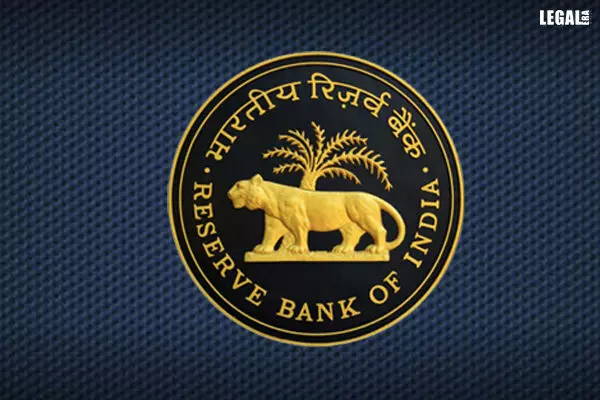- Home
- News
- Articles+
- Aerospace
- Agriculture
- Alternate Dispute Resolution
- Banking and Finance
- Bankruptcy
- Book Review
- Bribery & Corruption
- Commercial Litigation
- Competition Law
- Conference Reports
- Consumer Products
- Contract
- Corporate Governance
- Corporate Law
- Covid-19
- Cryptocurrency
- Cybersecurity
- Data Protection
- Defence
- Digital Economy
- E-commerce
- Employment Law
- Energy and Natural Resources
- Entertainment and Sports Law
- Environmental Law
- FDI
- Food and Beverage
- Health Care
- IBC Diaries
- Insurance Law
- Intellectual Property
- International Law
- Know the Law
- Labour Laws
- Litigation
- Litigation Funding
- Manufacturing
- Mergers & Acquisitions
- NFTs
- Privacy
- Private Equity
- Project Finance
- Real Estate
- Risk and Compliance
- Technology Media and Telecom
- Tributes
- Zoom In
- Take On Board
- In Focus
- Law & Policy and Regulation
- IP & Tech Era
- Viewpoint
- Arbitration & Mediation
- Tax
- Student Corner
- AI
- ESG
- Gaming
- Inclusion & Diversity
- Law Firms
- In-House
- Rankings
- E-Magazine
- Legal Era TV
- Events
- News
- Articles
- Aerospace
- Agriculture
- Alternate Dispute Resolution
- Banking and Finance
- Bankruptcy
- Book Review
- Bribery & Corruption
- Commercial Litigation
- Competition Law
- Conference Reports
- Consumer Products
- Contract
- Corporate Governance
- Corporate Law
- Covid-19
- Cryptocurrency
- Cybersecurity
- Data Protection
- Defence
- Digital Economy
- E-commerce
- Employment Law
- Energy and Natural Resources
- Entertainment and Sports Law
- Environmental Law
- FDI
- Food and Beverage
- Health Care
- IBC Diaries
- Insurance Law
- Intellectual Property
- International Law
- Know the Law
- Labour Laws
- Litigation
- Litigation Funding
- Manufacturing
- Mergers & Acquisitions
- NFTs
- Privacy
- Private Equity
- Project Finance
- Real Estate
- Risk and Compliance
- Technology Media and Telecom
- Tributes
- Zoom In
- Take On Board
- In Focus
- Law & Policy and Regulation
- IP & Tech Era
- Viewpoint
- Arbitration & Mediation
- Tax
- Student Corner
- AI
- ESG
- Gaming
- Inclusion & Diversity
- Law Firms
- In-House
- Rankings
- E-Magazine
- Legal Era TV
- Events
Reserve Bank of India issues guidelines on acquisition in banks

Reserve Bank of India issues guidelines on acquisition in banks
The directions give effect to one of the Internal Working Group recommendations
The Reserve Bank of India has issued directions on the 'Acquisition and Holding of Shares or Voting Rights in Banking Companies.'
It has allowed promoters to hold 26 percent of the paid-up share capital or voting rights of a bank after the completion of 15 years from the commencement of its business. This was even if a person intending an acquisition that was likely to result in major shareholding in a bank, had to seek its prior approval.
It added that prior to completing 15 years, the promoters of banking companies may be allowed to hold a higher percentage of shareholding. It would be as part of the licensing conditions, or the shareholding dilution plan submitted by the banking company and approved by the RBI.
The regulatory body said it could also permit higher shareholding on a case-to-case basis under circumstances such as relinquishment by existing promoters, and supervisory intervention, including under Prompt Corrective Action, reconstruction/restructuring of banks, the entrenchment of existing promoters, or any other action in the interest of the banking company and its depositors or in the interest of consolidation in the banking sector.
It added that while allowing such higher shareholding, the RBI may impose conditions as deemed fit (including dilution of such higher shareholding within a timeline).
In 2021, RBI accepted the recommendation of the Internal Working Group (IWG) to review extant ownership guidelines and corporate structure for Indian private sector banks. The cap on promoters' stake in the run-up to 15 years could be raised from the current level of 15 percent to 26 percent of the paid-up voting equity share capital of the bank.
It maintained issuing the directions with the intent of ensuring that the ultimate ownership and control of banking companies were well diversified, and the major shareholders were 'fit and proper' on a continuing basis.
On receipt of the application (for acquisition) and declaration from the applicant, the RBI may seek comments from the banking company.
The guidelines further indicated that the concerned banking company shall furnish its comments after considering all relevant aspects along with a copy of the relevant board resolution and information (Form A relating to the applicant's track record on integrity and reputation, report of the banking company, and whether the board considers/suspects the proposed acquisition as an attempt for takeover or for destabilization of the management), within 30 days.
For this, the banking companies shall put in place a board-approved 'fit and proper' criteria for major shareholders.
A banking company shall on an ongoing basis continuously monitor:
(a) Its major shareholders, who have completed the approved acquisition.
(b) Applicants for whom comments have been provided by the concerned banking company to the RBI for approval to have major shareholding.
(c) Applicants approved by the RBI to have a major shareholding but were yet to complete the approved acquisition.
Moreover, the banking company was required to obtain, within one month of the close of the financial year, a report on any changes in the Form A information.




